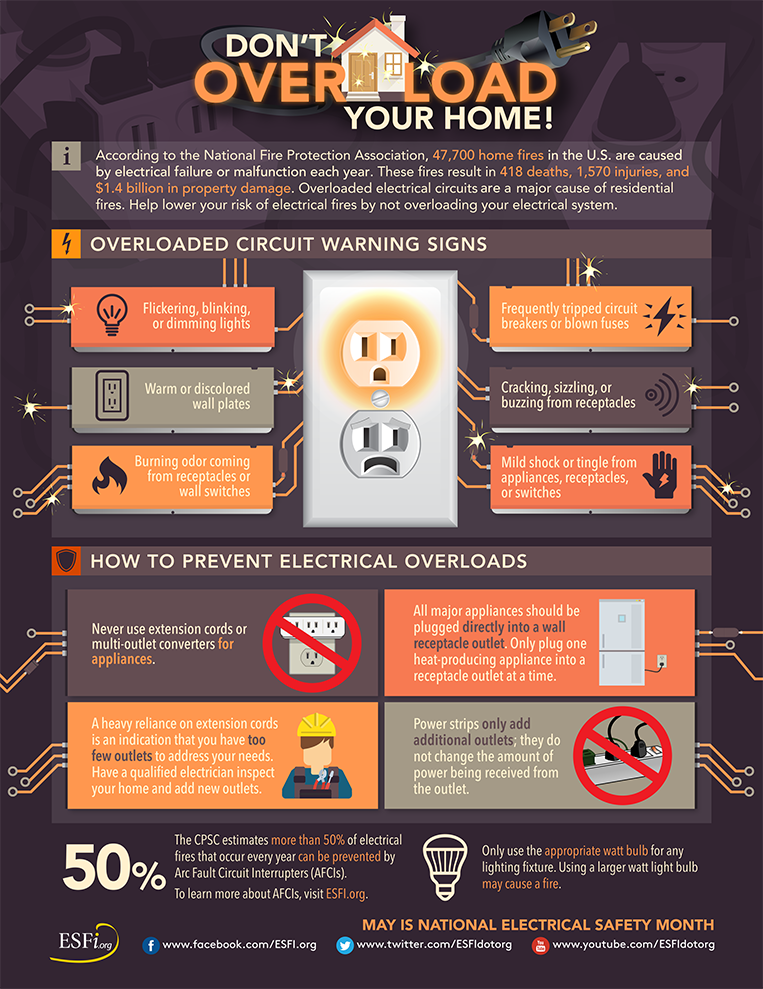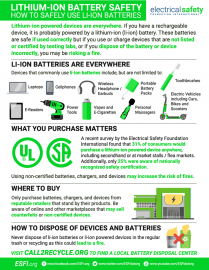
Electrical safety can help prevent injuries, fires and other property damage in your home.
May is National Electrical Safety Month, and the Electrical Safety Foundation International (ESFI) has a variety of resources to educate homeowners. A simple understanding of electrical safety principles and practices is vital to keeping yourself, your family and your home safe.
The five tips below can help you ensure optimal electrical safety in your home.
1. Prevent electrical overloads
Overloaded outlets and circuits are one of the biggest causes of residential fires. This graphic tells you more.

2. Practice extension cord safety
Extension cords can overheat and cause fires when used incorrectly. When you overload these cords, or don’t use them properly, they can cause fires. To stay safe:
- Make sure to only buy cords that have been approved by an independent testing laboratory.
- Always inspect cords for signs of damage before using them.
- Never connect extension cords to each other.
- Never use extension cords with heaters or fans, because that could cause them to overheat.
For additional tips and guidance, check out these recommendations from ESFI.
3. Use lithium-ion batteries safely
Lithium-ion batteries power a wide variety of products and devices, particularly rechargeable devices. The tips below can help you ensure that you’re using, charging and disposing of these batteries correctly and safely.

4. Always look up
Before you start any home project, take stock of your surroundings, including overhead, so you know where power lines are located. This graphic gives more tips.

5. Use home safety checklists
Ensuring your home is safe from electrical hazards may seem overwhelming, but you can make it more manageable by following these checklists from EFSI for a variety of home safety topics.




